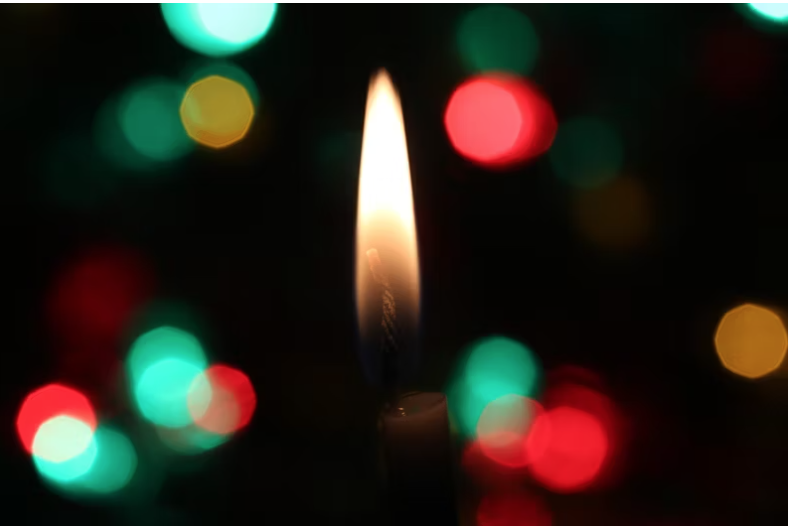
The Duality of Christmas: Bright Cheer and the Hidden Darkness
The holiday season often arrives like a burst of light, igniting the winter darkness with glimmering decorations, sparkling lights, and the promise of joy and togetherness. Yet beneath the surface of Christmas cheer lies a complex underbelly — one marked by stress, solitude, and sometimes an overwhelming sense of isolation. While many embrace the holiday as a time for family and festivity, there are also those for whom it is a stark reminder of what they lack. And for many, the pressures of creating the “perfect” holiday experience, of living up to societal expectations, can quickly dampen the joy.
Christmas is a season of dualities: the bright and the dark, the loud and the quiet, the abundance and the absence. This contrast makes the holiday uniquely rich but also deeply challenging for many. The reality of this tension is one that we must recognize, especially as we move into winter, a season that invites us not to rush but to slow down, reflect, and savour the quiet moments of rest and reflection.
The Bright Holiday Cheer
At the heart of Christmas is an undeniable energy — one of joy, light, and generosity. We see it in the decorations that adorn homes, the streets lined with twinkling lights, and the sound of carolers lifting their voices in song. It is the time of year when families come together, exchanging gifts and sharing meals. There’s an almost magical quality to these moments — the idea that everything is possible, that we can embrace peace, love, and joy, if only for a few days.
Christmas promises an escape from the mundane — a time to revel in the spirit of goodwill and togetherness. People travel long distances to be with loved ones, and even those who can’t be together find creative ways to bridge the gap with phone calls, video chats, and heartfelt messages. The sense of community, of shared ritual and tradition, is a balm for the soul, reminding us of the beauty of connection.
Yet, even within these moments of joy, there is often a quiet tension. The desire to create the “perfect” holiday experience can lead to exhaustion. The endless lists of presents to buy, meals to prepare, homes to decorate, and parties to attend can leave little room for rest, reflection, or self-care. This pursuit of perfection can blur the meaning of Christmas itself, turning it into a whirlwind of obligations rather than a celebration of love and connection.
The Underbelly of Christmas
The duality of Christmas is that while it can be a time of joyous celebration, it can also be a time of heightened stress, anxiety, and sadness. This season, meant to bring people together, can also highlight divides—whether they be financial, emotional, or relational. People feel pressured to meet expectations, to be “happy” when they’re struggling, or to show up for others when they feel drained.
For many, the idea of gift-giving brings added financial pressure. The desire to provide the perfect presents for loved ones, often fuelled by the commercial push to buy more, can feel overwhelming. For others, the holidays are reminders of absent family members, of estranged relationships, or of a sense of not belonging. It’s easy to get caught up in the contrast between the world’s outward joy and the inward isolation or sadness that some feel.
Christmas also asks us to do it all—to shop, cook, decorate, travel, entertain, and keep up appearances. The pressure of maintaining an ideal holiday can quickly feel exhausting. By the time Christmas Day finally arrives, many find themselves burnt out, unable to truly enjoy the moment.
Finding Balance Between Cheer and Reflection
Embracing the full spectrum of Christmas — the cheer and the darkness — requires a conscious effort to balance the external celebration with internal reflection. While getting caught up in the whirlwind of holiday preparations is easy, it is just as important to carve out time for solitude and quiet. The winter season offers an invitation to step away from the hustle and find peace in the stillness.
Rather than rushing through the season, we can take time to honour the slowness of winter. Whether it’s by lighting a candle, sipping tea by the fire, or simply sitting in silence, we can allow ourselves to breathe and reflect. In doing so, we can come to a deeper understanding of what Christmas truly means: not just the decorations or the gifts, but the opportunity to pause, reflect, and be grateful for the harvest of our lives.
Conclusion: Embracing the Dualities of Christmas
Christmas is a time of contrasts. It is bright with joy and cheer, yet shadowed by stress and isolation. But rather than ignoring the complexities of the season, we can choose to embrace them. By slowing down, reflecting, and giving ourselves permission to experience both the highs and lows, we can approach the holiday with greater understanding and peace. Winter is a time of rest, of honouring what has been and what is yet to come. In this space, we can find a deeper connection to ourselves, to others, and to the true meaning of the season — a meaning that transcends the lights and the gifts and reaches into the heart of what it means to be human.